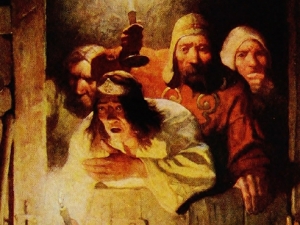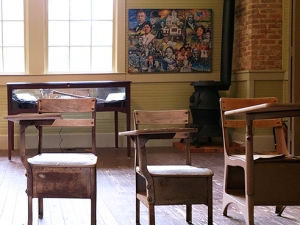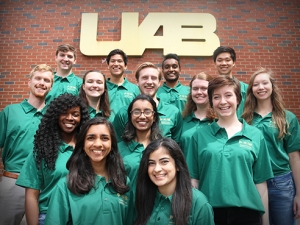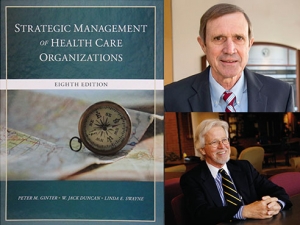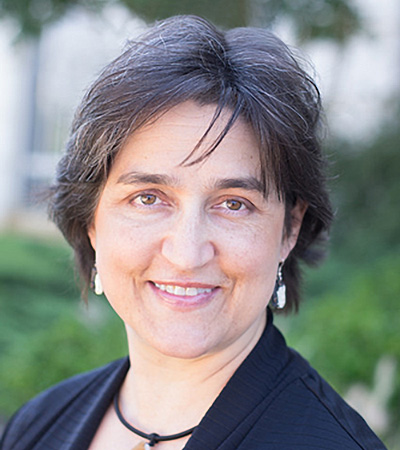 Alison Chapman, Ph.D., professor and chair of UAB’s Department of English, says the 17th century was this great period of legal reform in the West: "It’s fascinating how so many ideas of what we think of as ‘just’ are being hammered out in that period.”Every year, Alison Chapman, Ph.D., teaches a class on English poet John Milton in UAB’s English department, where she is both a professor and department chair. She’s read his 1667 magnum opus, “Paradise Lost,” countless times, and, as often happens during a re-read of a favorite novel, she discovered something new.
Alison Chapman, Ph.D., professor and chair of UAB’s Department of English, says the 17th century was this great period of legal reform in the West: "It’s fascinating how so many ideas of what we think of as ‘just’ are being hammered out in that period.”Every year, Alison Chapman, Ph.D., teaches a class on English poet John Milton in UAB’s English department, where she is both a professor and department chair. She’s read his 1667 magnum opus, “Paradise Lost,” countless times, and, as often happens during a re-read of a favorite novel, she discovered something new.The more Chapman read “Paradise Lost,” the more legal terminology she found. Throughout, Milton uses legal terms such as “injunction,” “contract,” “accessory” and “felon,” among others, which is logical considering Milton’s personal legal involvements — for example, his father was a scrivener, his nephews and brothers-in-law were lawyers and his brother was a judge.
While researching the subject, Chapman said she discovered almost nothing had been written on Milton’s use of law in his famous epic poem.
“I was surprised to find that Milton himself is the single most litigious poet in English history, and there really has never been a book studying his legal involvement,” she said.
Her response? Write the book herself. “The Legal Epic: ‘Paradise Lost’ and the Early Modern Law”, published in February by the University of Chicago Press, contends that “Paradise Lost” is uniquely representative of the period’s fascination with law and the judicial system. By exploring Adam and Eve’s disobedience and subsequent fall from grace, Milton attempts to “justify the ways of God to men” by appealing not only to reason and conscience but to core principles of early modern jurisprudence. In essence, Milton wanted to help human beings make sense of God.
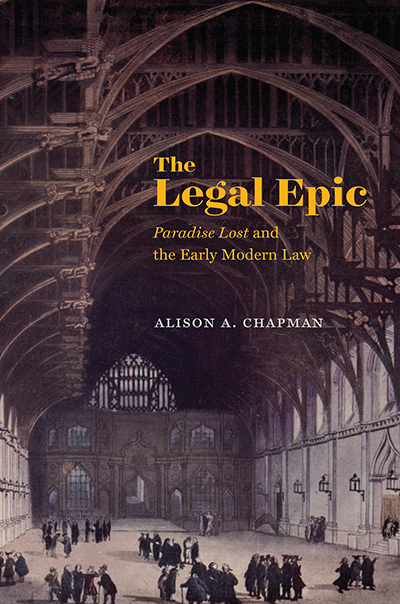 “It was fun to fill this big gap in our understanding,” Chapman said. “One of the most canonical, central authors in the English literary tradition had extensive legal knowledge that has been overlooked. My goal was to show how those flow into ‘Paradise Lost’ and how seeing them for the first time can change our sense of what he was up to.”
“It was fun to fill this big gap in our understanding,” Chapman said. “One of the most canonical, central authors in the English literary tradition had extensive legal knowledge that has been overlooked. My goal was to show how those flow into ‘Paradise Lost’ and how seeing them for the first time can change our sense of what he was up to.”A changing world
Seventeenth-century England saw the beginnings of a shift from a multi-law culture to what would be considered “normal” today, characterized by the introduction of ideas such as the rules of evidence, the right to defense counsel and the principles of negligence.“We tend to only think of there as being only one type of law,” Chapman said. “But there were once many: ecclesiastical, Roman, common laws. There was a bewildering patchwork of institutions that administered legal systems that weren’t organized. It’s fascinating how so many ideas of what we think of as ‘just’ are being hammered out in that period. All these core ideas of law are being assembled around him, making their way into his poem.”
“In Milton’s world, law is deeply connected to religion, while for us it is separate. In the 17th century, they were both part of a single fabric or system that reflected the mind or will of God for humanity,” Chapman said. ““From a modern point of view, it doesn’t make a lot of sense for law to be in what is essentially a theological poem, so I think Milton’s use of law has been easy to miss. The law used in ‘Paradise Lost’ is almost like a bridge that helps readers connect heaven and earth.”
Law in society
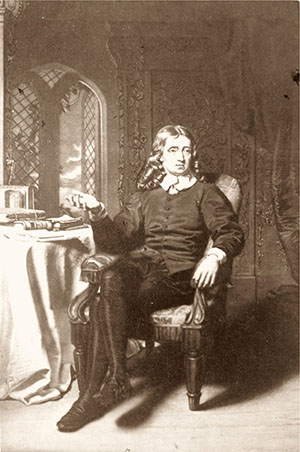 John Milton, English poet and author of the 1667 magnum opus, “Paradise Lost”
John Milton, English poet and author of the 1667 magnum opus, “Paradise Lost” “The law allows people to create a productive society and raise their children and socialize peaceably with their neighbors,” she said. “A social network is emerging.”
Understanding the role jurisprudence played in communities in the 1600s is imperative, Chapman said; now, law is specialized, requiring a specific degree and license in order to practice. In the 17th century, however, it was participatory.
“Ordinary people participated in the legal system as bailiffs, as constables, as witnesses, as members of inquest panels and juries,” Chapman said. “When you have small, stable communities, if the mechanisms of law are to work, everyone has to get involved. What this means is that the average people on the street have a pretty highly developed understanding and expertise they can bring to bear, so a writer like Milton can use ideas from property law or contract law and assume his readers will understand.”
|
“One of the most canonical, central authors in the English literary tradition had extensive legal knowledge that has been overlooked.” |
“We are all really interested in or have an innate sense of the ideas of equity and fairness, and we like watching TV about it, but most of us aren’t going to go and represent ourselves in court,” Chapman said. “It’s something we like to watch, but not something we are necessarily going to get involved in.”
Chapman now is writing a book that explores the way law informs Milton’s other works.
Editor's note: In January 2018, "The Legal Epic: 'Paradise Law' and Early Modern Law" was named an Outstanding Academic Title of 2017 in the English and American language and literature category by "Choice," a monthly magazine from the Association of Colleges and Research Libraries. In October 2018, the book earned the James Holly Hanford Award for most distinguished book of 2018 from the Milton Society of America, which aims to further scholarship on English poet John Milton both nationally and globally.
